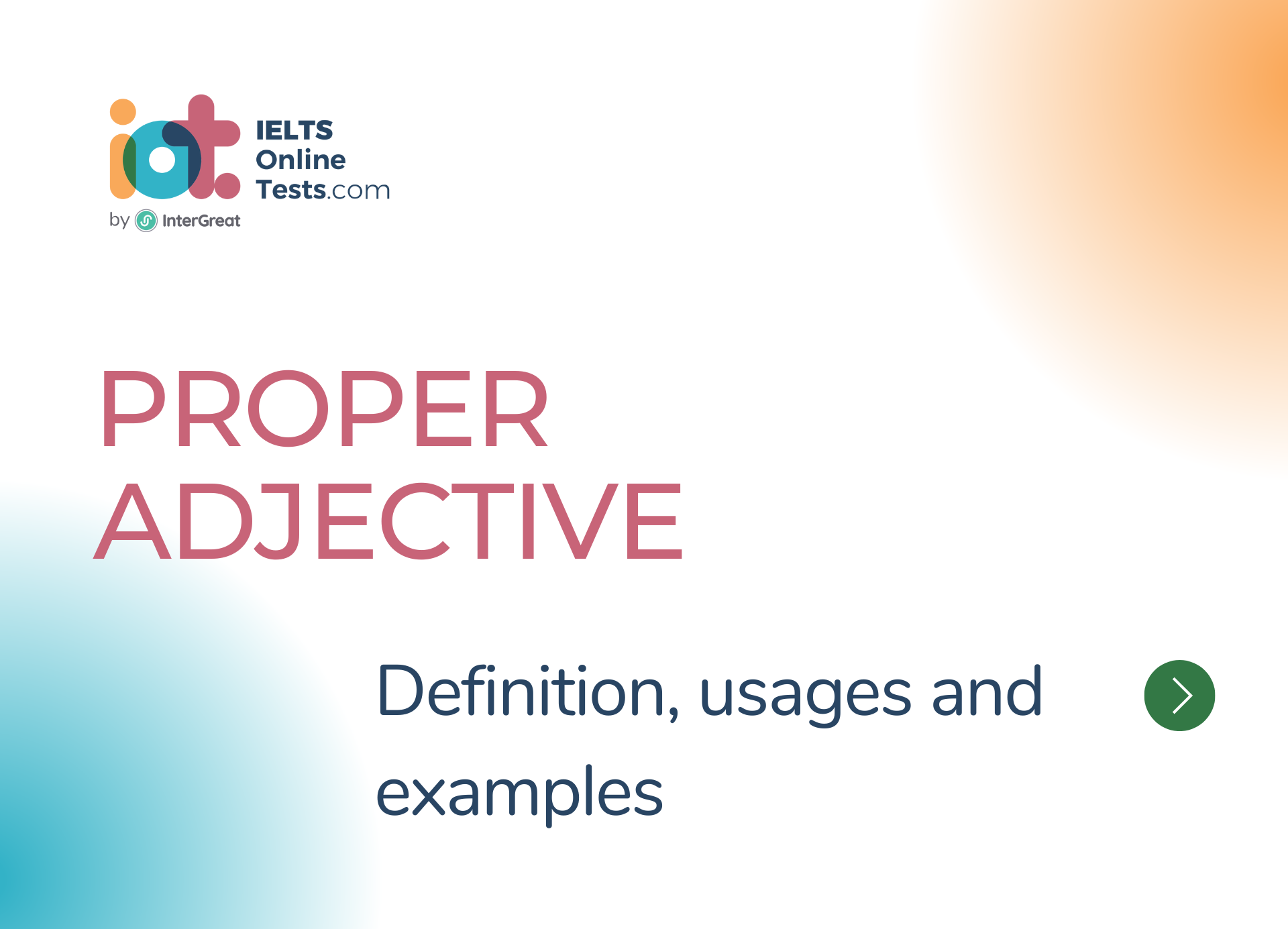
Proper Adjective definition, usages and examples
Proper adjectives are derived from proper nouns, which are specific names of people, places, or things. Proper adjectives retain the same characteristics as proper nouns but function as adjectives to modify or describe other nouns.
Here are some key points about proper adjectives:
Formation: Proper adjectives are formed by converting proper nouns into adjectives by using uppercase letters.
Derived from Proper Nouns: Proper adjectives are derived from proper nouns, which are specific names of people, places, or things.
- Example:
- American (derived from the proper noun "America")
- Shakespearean (derived from the proper noun "Shakespeare")
- Olympic: "The athlete won a gold medal at the Olympic Games."
- Roman: "The city is known for its impressive Roman architecture."
- Chinese: "We enjoyed a traditional Chinese meal."
- Example:
Capitalization: Proper adjectives are capitalized since they originate from proper nouns.
- Example:
- French cuisine.
- Italian fashion.
- Shakespearean sonnets.
- Example:
Descriptive Function: Proper adjectives modify or describe other nouns, just like regular adjectives.
- Example:
- Chinese cuisine.
- London streets.
- Victorian architecture.
- Example:
Specificity: Proper adjectives are used to denote particular characteristics associated with a specific person, place, or thing.
- Example:
- Roman Empire.
- Mozart's music.
- Olympic Games.
- Example:
Unique Cultural, Geographic, or Historical Associations: Proper adjectives often carry cultural, geographic, or historical associations related to the specific entity they are derived from.
- Example:
- Hollywood glamour.
- Greek mythology.
- Buddhist teachings.
- Example:
Agreement: Proper adjectives do not change in form to agree with the noun they modify.
- Example:
- Vietnamese literature.
- Mexican cuisine.
- Example:
Proper adjectives allow us to describe or refer to characteristics associated with specific people, places, or things. They contribute to the precision and specificity of language by capturing the unique qualities or attributes of the proper noun from which they are derived.




